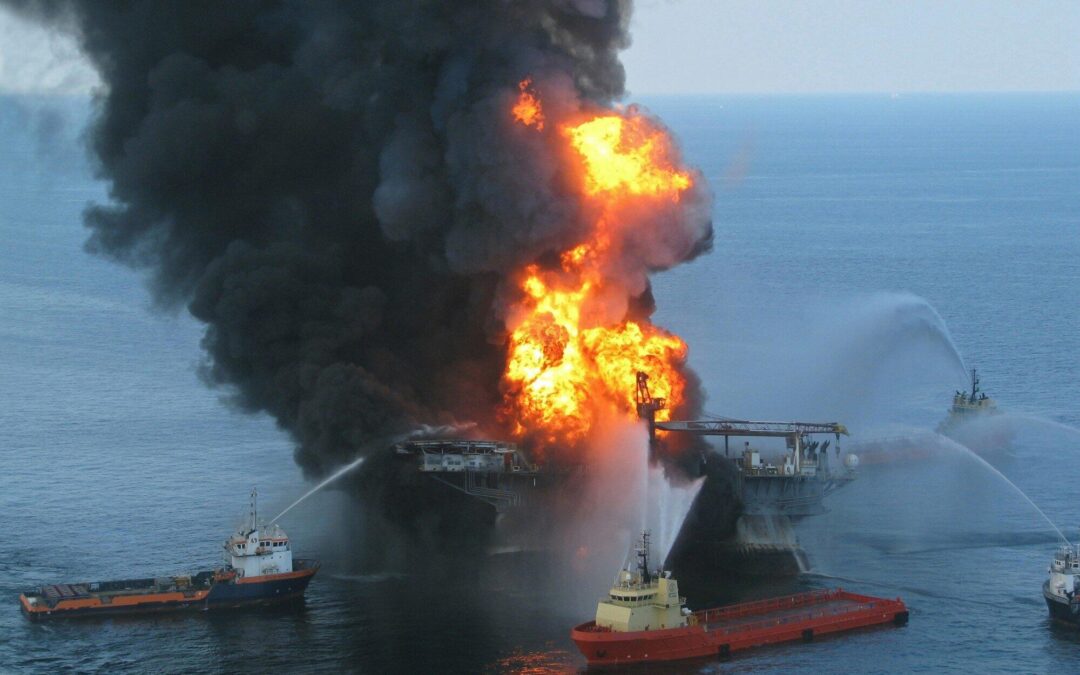A lot of jobs involve some level of risk, but few are quite as hazardous as working on an offshore oil rig.
Oil rig workers are a vital part of society, but there are plenty of risks they expose themselves to every day. Among these, fire risks are potentially the most dangerous. If you’re an offshore oil rig worker, it’s important to know these risks and the legal aspects of them.
In this guide, we’ll take a closer look at offshore oil rig fires so you can get a better understanding of the risks involved. Keep reading for more.
Common Causes of Oil Rig Fires
Many people make the mistake of thinking that an offshore oil rig is at less risk of fire due to being offshore, but this is far from the truth. In reality, there are several common causes of fires on oil rigs. Being aware of these can help workers keep the risk of fires to a minimum.
Equipment Malfunctions
Oil rigs require a lot of complicated machinery to keep functioning. All of this equipment is designed to be as safe and reliable as possible, but there’s always a chance that things can go wrong.
Oil rig workers are constantly around fuel and other flammable substances. All it takes is a small spark from a malfunctioning piece of equipment to start a blaze, and these can spread fast.
It’s important to note that even safety equipment can fail. This equipment may serve the purpose of preventing or dampening the effect of a fire, but it can fail to do so, resulting in an oil rig explosion or fire.
Negligence
Everyone on an oil rig should be properly trained and qualified for their role, but people can still make mistakes. It’s not unheard of for employees to ignore safety training, which can result in fires or other issues. Companies may fail to provide the proper equipment, or employees may use the equipment incorrectly.
Strict standards are in place to maintain safety on oil rigs. The responsibility of employers is to ensure everyone knows these standards and to enforce them properly.
Uncontrolled Gases
Oil and natural gases are highly flammable, so handling them with care is vital. If they’re released without proper control, they can ignite, resulting in fires and explosions. Employers should oversee the installation and maintenance of any equipment that controls the release of oil and gases to ensure there are no issues.
Common Injuries From Oil Rig Fires and Explosions
Fires can cause significant damage to property and equipment, but the biggest risk is always to people. Fires on oil rigs often result in burns, but they can also lead to other injuries such as:
- Crush injuries
- Brain injuries
- Spinal cord injuries
- Dismemberment
These can all be devastating, so keeping the risk of fire to a minimum is essential.
Oil Rig Fire Prevention
A burn on land can be bad, but in most cases, people can receive medical attention fairly quickly. This is vital for second-degree burns or worse as they can lead to infection or further damage if not treated quickly.
Anyone on an offshore oil rig won’t have immediate access to treatment, and it can take medical professionals a long time to reach an offshore oil rig. As such, avoiding burns and other severe injuries is incredibly important. There are several things that you can do to protect your employees and encourage them to be safe.
- Turn off equipment when refueling
- Immediate clean up of hazardous chemicals or flammable spills
- Disposing of cigarettes properly (or not smoking at all)
- Take fire precautions
- Use fire doors
Ensure your employees understand the best practices to keep everyone safe.
Steps to Take After an Oil Rig Fire
If a fire breaks out on your oil rig, the first thing to do is extinguish the fire and assess any injuries. If you (or anyone else) have burns or other injuries, you should seek immediate medical attention. Getting help quickly will help minimize the severity of injuries.
After this, you should seek out legal representation. Offshore injuries can be complex, so it’s important to have an experienced lawyer on your side.
If you need to file a personal injury or workers’ compensation claim, you only have a limited time to do so. Hire an attorney to help you determine liability and give you legal guidance throughout your case.
Determining Liability for an Oil Rig Fire
Liability will determine the outcome of your case, and it’s not always easy to place. An oil rig attorney can help you determine who’s at fault for your injury so that you can seek compensation.
There may be various factors that contribute to a fire injury on an offshore oil rig. If it’s determined that your employer was negligent, then they’ll likely be held accountable. This often happens when they don’t provide proper training/equipment, don’t follow safety procedures, or fail to ensure the work environment is safe.
Your attorney will likely have an in-depth knowledge of OSHA safety standards, so they can determine any violations that your employer has made. This will help them build a strong case that should end with you getting suitable compensation.
Legal Representation for Oil Rig Fires
Oil rig fires can be devastating, and may have been preventable. When they happen, it’s can often be due to negligence, and an employer could be at fault. If you suffer burns or any other kind of oil rig injury, finding an experienced injury lawyer should be considered as one of your top priorities.
Talbot, Carmouche & Marcello is a professional law firm that serves clients throughout Louisiana. We’ve been in business for over 50 years and have plenty of experience helping people with all kinds of cases.
Call us today or schedule a free consultation online to find out more about how we can help.

